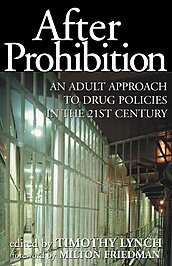More than 10 years ago, federal officials boldly claimed that they would create a ‘drug-free America by 1995.’ To reach that objective, Congress spent billions on police, prosecutors, drug courts, and prisons. Despite millions of arrests and countless seizures, America is not drug free. Illegal drugs are as readily available today as ever before. Drug prohibition has proven to be a costly failure. Like alcohol prohibition, drug prohibition has created more problems than it has solved.
The drug war has destroyed the lives of inner-city residents, corrupted law enforcement, and distorted our foreign policy. Yet drug prohibition is still seen as a viable strategy by our political leaders. Paradoxically, alternative drug policies—such as legalization—fall outside of the parameters of serious debate in our nation’s capital. No one maintains that drug legalization would be a panacea. There is no question that drug abuse would continue to be a problem even in the face of legalization. But drug prohibition is a blunderbuss approach that treats Americans with very little respect. It treats them like children. It is time to deal with adult drug use in a more open, honest, and mature manner. The drug war has been given a chance to work, but it has failed miserably.
Contributors
–Ted Galen Carpenter, vice president for defense and foreign policy studies, Cato Institute
–Steven Duke, professor of law, Yale University
–Gary Johnson, governor of New Mexico
–David Klinger, professor of criminology, University of Missouri
–David B. Kopel, director of research, Independence Institute
–Michael Levine, former agent of the Drug Enforcement Agency
–Daniel Lungren, former attorney general of California
–Timothy Lynch, director of the Cato Institute’s Project on Criminal Justice
–Joseph McNamara, research fellow, the Hoover Institution.
–Roger Pilon, vice president for legal affairs at the Cato Institute
–Daniel Polsby, professor of law at George Mason University
–Julie Stewart, president, Families Against Mandatory Minimums
